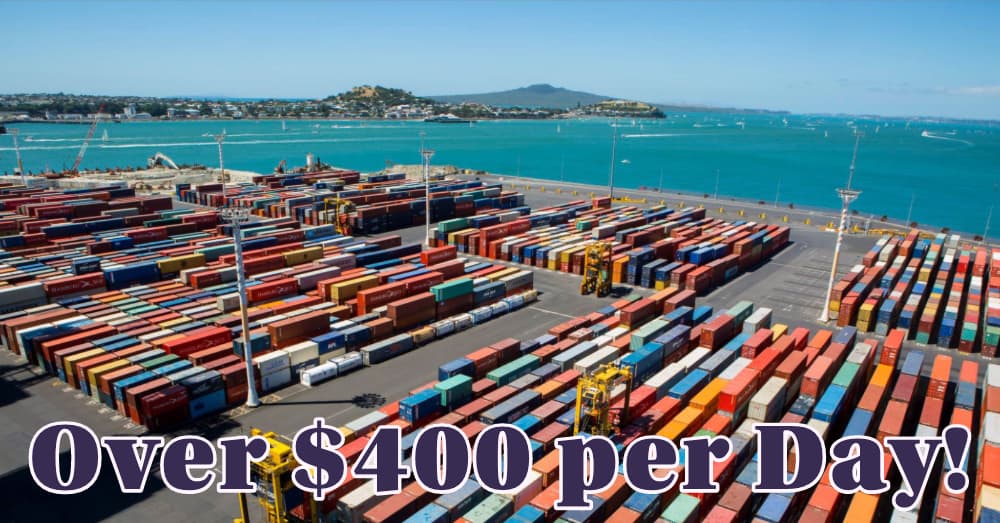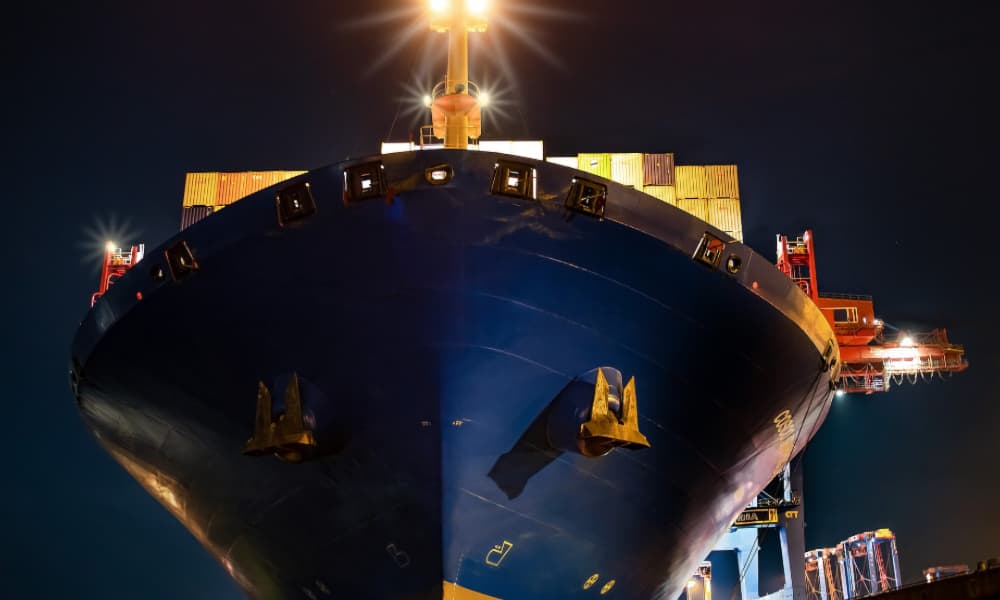
NZ Importers Fed Up With Container Hire / Detention Fees (Go to Court?)
5-minute read
Last week’s Commentary column explored the supply chain friction that is occurring with container detention charges one of the central issues.
In recent times, where container depots around Auckland have been full, and the truckers working for importers and forwarders have been unable to de-hire empties, arguments have erupted when detention notices have been issued.
The importers say “it’s not our fault, we booked the trucker to do the offhire”. The truckers are saying “we were turned back by the depot so what can we do, it’s not our fault?”
Meanwhile, the lines continue to rack up the detention fees and relationships between importers/forwarders and the trucking industry in particular have become strained.
Last week’s column analysed the case law that has been amassed in Australia over the last eight years, where the courts have basically found that detention charges are a “hire charge” between the shipping line and the importer (bound by the terms and conditions of the Bill of Lading).
Australian importers and forwarders are unhappy with this legal position about detention charges not constituting a “penalty”, but that is the factual status quo.
American shippers and importers too have voiced their anger that carriers are “profiting at their expense” from port congestion and the US Federal Maritime Commission (FMC) is currently investigating the “detention, demurrage and free time practices of ocean carriers and marine terminal operators”.
Coming back to the New Zealand (and Australian) situation, there are a couple of other aspects to consider.
First is the quantum of the charges. The lines’ position historically is that they need to have their equipment returned, and therefore need to apply a charge to compensate for the time the box is out of their equipment pool.
The general principles are easy enough to grasp – a prescribed period of free time is allowed for import containers to be devanned and returned. Beyond that, customers face detention charges.
However, when you get into the detail of the charges, the questions arise as to whether the system is equitable and whether the quantum of charges reflect the value of the containers.
For example, some importers may think “free time” starts from when they collect the box and begin devanning. However, usually it starts from the first day the container is made available on the wharf, so the clock is ticking.
Obviously, the importer or forwarder does not immediately take possession of the box until it is delivered by truck, by rail or a coastal vessel, but the free time period is already being eroded.
If there are any delays in organising the pick-up, or any hold ups with border processing requirements, it eats into the free time allocation, which can be hard on an importer who may have no control over the process.
The line may give seven days of free time, which many importers and forwarders think is not sufficient when the time taken to organising pick-up is taken into account and if weekends/ holidays are included in the free time calculation.
After day seven of free time, a line might begin to charge the importer or forwarder between say $75 and maybe $180 per day depending on the type of container (cheapest being a dry 20-footer and dearest a 40ft reefer).
If the detention runs into a second week, the charges might rise to between something like $80 and $300 per day.
Move into the third week of detention or beyond and the importer/forwarder might be billed every day for something in the region of $150 to over $400, depending on container type and size.
The question is whether those costs are reasonable when a brand new 40ft ordinary container can be bought for something like $6000 (reefers obviously would be far more expensive, maybe towards $20,000)?
Importers and shippers might look at the low ocean freight rates now being earned by carriers, and wonder if a line which can get over $100 a day for a box is quite happy, because it is actually getting a better per-day return from the box than when that container is making its long ocean journey from Asia or Europe.

My guess is that it is unlikely we’ll see a legal challenge to the level of costs, because you would need a shipper (party to the B/L terms) to take on this issue in a court.
That’s unlikely to be a small-to-medium shipper because of the Australian case law precedent mentioned above and because of the costs of doing so.
So, the container detention issue continues to simmer. Feedback from a Shippers’ Council member summed up the frustration: “Detention costs are being incurred due to the inability for road carriers to de-hire empties due to congestion at the depots.
“Some shipping lines offer little support here and the onus is falling back on the road carrier, forwarder or importer to front up with evidence in order to dispute detention invoices raised when it is widely accepted there are congestion issues at the container deports.”
And in terms of the quantum of the detention charges compared to the value of the box, the same Shippers’ Council member revealed the behind-the-scenes friction this causes: – “The invoiced detention amount can very quickly escalate to the point that the amount exceeds the value of the container, if the charges were to be paid as invoiced.
There is a huge amount of resource being tied up between parties having to challenge these invoices.”
Perhaps lines could show more leniency with container detention charges at times when the supply chain is congested but one point that another reader put to me was that a lot of the decisions related to container detention charging and potential softening of policy are made offshore at Principal level and that is where the inflexibility lies.
The friction caused by the container detention charges is also stirring another pot which has long been a source of importer and shipper angst, namely Terminal Handling Charges (THCs).
The theory behind THCs is simple – they are additional costs, on top of the sea freight, charged by the shipping company for the handling of containers at the container terminal.
Import THCs applied by lines on New Zealand services might range from say $350 for a dry 20-footer to $700 for a 40ft reefer that needs to go onto power. The trouble is, shippers and importers have no idea how these figures are arrived at.
The deals done between shipping lines and the ports/container terminals are confidential and commercially-sensitive, so the freight customer does not know how much of a mark-up is being applied.
Many exporters simply look at the total package of costs (freight rate plus Port of Origin THC), and make a decision on which carrier to use based on that bottom line.
Importers may have less influence in that regard but the Destination THC is a cost that they must bear.
Shippers here and overseas (particularly Europe) have long complained that THCs are a mysterious mechanism through which lines can look to boost revenue, particularly when freight rates are low.
Maybe when the supply chain is working well, and there’s no pressure, one doesn’t hear of complaints about container detention fees and THC levels.
But now, when congestion is causing friction throughout the chain, there are plenty of voices being raised.
Source: NZ Shipping Gazette
P.S. Easy Freight Ltd helps New Zealand importers & exporters to save money on international freight and reduce mistakes by guiding how to comply with Customs and biosecurity rules.
➔ Contact us now to learn how we can assist you.
